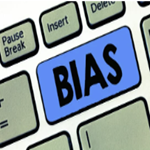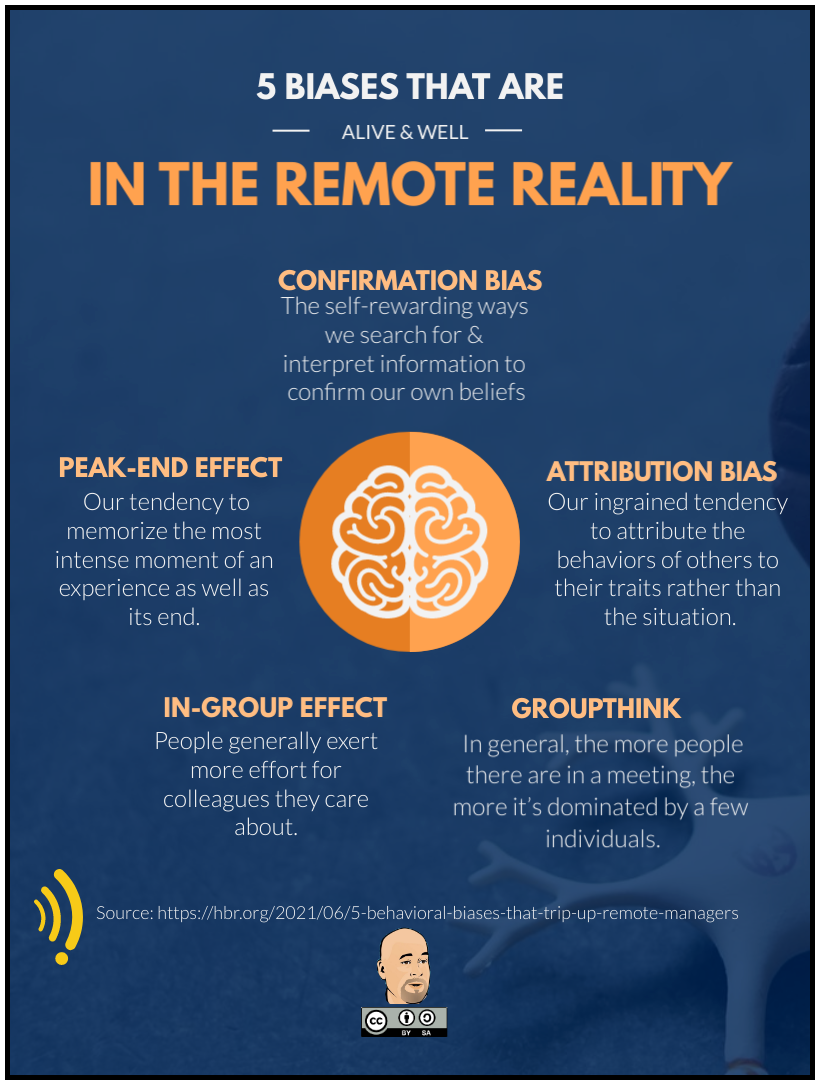Cognitive Bias
 In this module we will explore bias. Biases, like fallacies, do reflect mistakes in reasoning. But unlike fallacies, the mistakes are not external but internal.
Within cognitive biases the barrier to critical engagement is found in how we, as knowers, think and evaluate the world around us.
In what follows, some of the more frequently encountered cognitive biases are described.
In this module we will explore bias. Biases, like fallacies, do reflect mistakes in reasoning. But unlike fallacies, the mistakes are not external but internal.
Within cognitive biases the barrier to critical engagement is found in how we, as knowers, think and evaluate the world around us.
In what follows, some of the more frequently encountered cognitive biases are described.
The first thing you judge influences your judgment of all that follows.
How would you answer the following:
- Is the population of Turkey greater than 35 million?
- What 's your best estimate of Turkey's population?
In short, "When considering a decision, the mind gives disproportionate weight to the first information it receives" (Hammond, Keeney, & Raiffa, 2013).
What to do about it:
- Always view a problem from different perspectives
- Think about the problem prior to consulting others.
- Be open-minded; seek a wide variety of perspectives.
- Be careful to avoid anchoring others; limit the offering of original information as if you reveal too much, your own preconceptions may come back to you.
You irrationally cling to things that have already cost you something.
Have you ever poured money and time into improving something, e.g., a car, but at the same time, you knew that improvement was not likely? Maybe you kept pouring money into the problem because giving up at this point would have been too expensive?
In this case, the investments have become "sunk-costs" or irrecoverable assets. The value of these assets can weigh on our minds and unduly influence our analysis.
Thinkers who justify current choices based on past choices, even when the past choices are no longer valid, have fallen into this trap.
What to do about it:
- Seek out and listen carefully to the views of people who were uninvolved with earlier decisions and are therefore unlikely to be committed to them
- Examine why admitting to an earlier mistake might distress you
You favor things that confirm your existing beliefs.
In one study, two groups - one supporting and one opposing capital punishment - were given a balanced and critical report concerning the effectiveness of the death penalty as a deterrent. Despite being exposed to solid evidence exploring the strengths and weaknesses of each position, each group automatically accepted the supported information and dismissed the conflicting information (Hammond, Keeney, & Raiffa, 2013).
This bias leads us to seek out information that supports our existing instinct while avoiding information that contradicts it.
What to do about it:
- Always check to see whether you are examining all the evidence with equal rigor
- Get someone you respect to play the "devil's advocate
- Be honest about your motives
- Avoid leading questions
Your judgments are influenced by what springs most easily to mind.
We all exaggerate the probability of rare but catastrophic occurrences such as plane crashes. But a personal event can also distort your thinking. If you have recently had a traffic accident you may assign a higher chance of traffic accidents (Hammond, Keeney, & Raiffa, 2013).
Because we frequently base projections on dramatic past events, the probabilities assigned to the future events can be skewed.
What to do about it:
- Carefully examine all your assumptions to ensure they're not unduly influenced by memory
- Get "actuals" whenever possible
- Try not to be guided by impressions

External Resource
Check out https://yourbias.is/ for additional biases. For your convenience, here is an infographic detailing nine biases as explained on the site:

Recent Context
During the pandemic, the majority of classes were moved to a remote delivery. Many employers also switched to a remote setting. Unfortunately, the move did not lessen cognitive bias. Here is a short article exploring how some biases tend to thrive in a remote world.

Congratulations!
You have reached the end of Module 4. Please return to our course, and complete the short quiz on cognitive bias.



